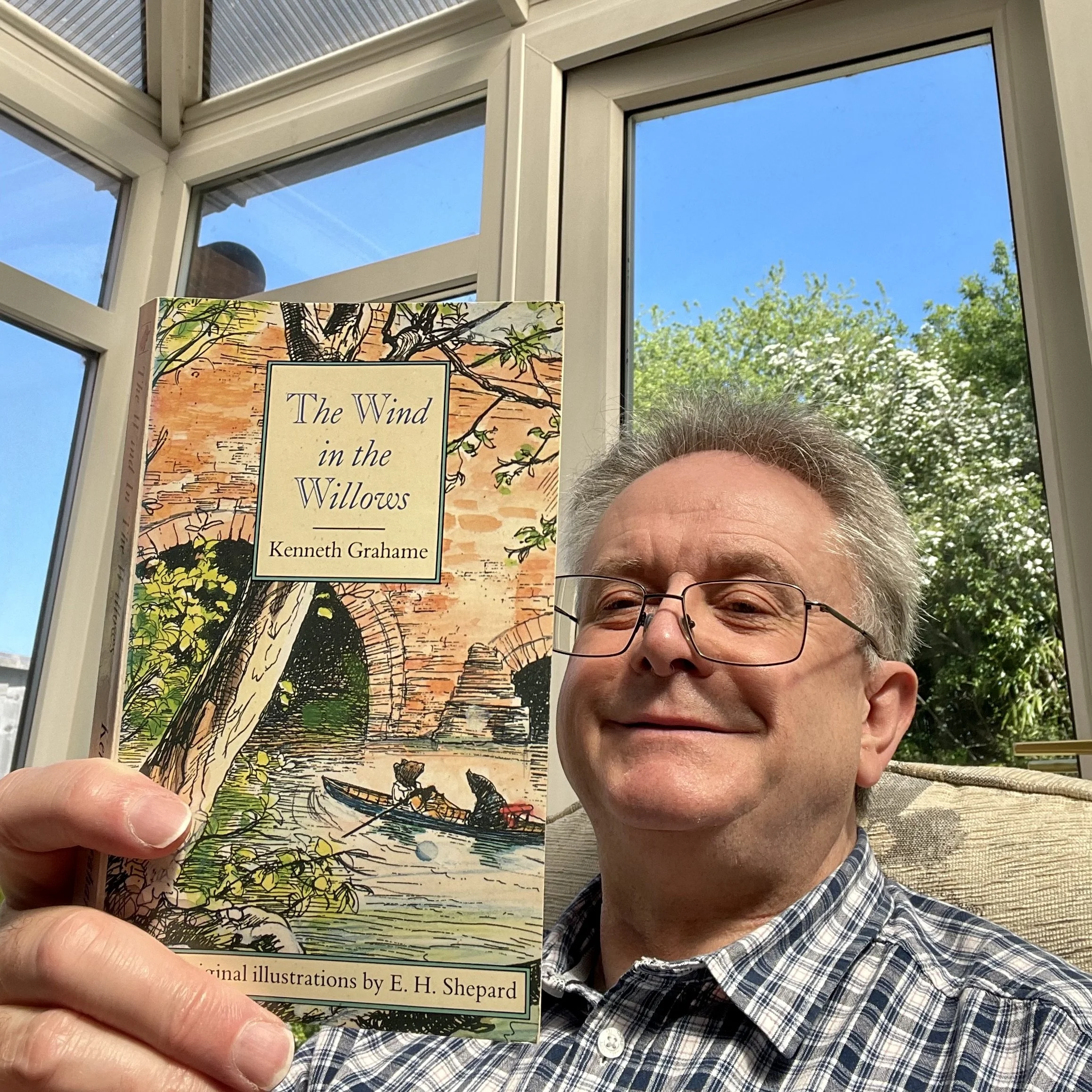The Wind in the Willows by Kenneth Graham
Resolute Books (who published Warrior Princess, Errant Page) are doing a series on social media about favourite children’s books. I thought I would put an expanded version of my contribution up here.
‘… there is nothing – absolutely nothing – half so much worth doing as simply messing about in boats.’
It wasn’t the boating I fell in love with (I am, and have always been, a poor swimmer), and the anthropomorphism could be found in countless other writers (Beatrix Potter, for a start), but it was the access to another world that enchanted me. A world where one ‘person,’ Ratty, had found his metier – had found what he wanted to do with his life – and at least one other, Mole, was searching for his. Never mind the mess that Toad got them all into!
This 1908 classic would not necessarily see the light of day were it put forward for publication now. Although there is the overarching story of Mole, Ratty, Badger and Toad, there are also diversions into other tales. The loss and recovery of Portly, Otter’s son, is one such, and the meeting with the god Pan – the Piper at the Gates of Dawn – does not seem connected with the main story. Indeed, these two tales are usually left out of the film TV and theatre adaptations. However, for me, they help create the whole mythology of the kingdom Graham is creating. And, isn’t life just like that? There may be a big project, a big event, coming up; but yet, the little things, minor crises by comparison, keep diverting you from the main task. And, after all, Toad Hall was, after a climactic battle, re-taken from the stoats and weasels by the four friends.
My other favourite quote comes from just before that batle:
“I’ll learn ’em!” says Toad, only to be corrected by the Rat, who says “Only I think it ought to be ‘teach ’em’, not ‘learn ’em’.”
“But we don’t want to teach ’em,” replied the Badger. “We want to learn ’em – learn’em, learn ’em! And what’s more, we’re going to do it, too!”
For a child who was being schooled in correct (Received Pronunciation) English, and who knew it was teach them, reading this sort of anarchic statement, in defiance of proper English, and in what was, after all, meant to be a classic, was a thrill almost as good as reading about the actual storming of Toad Hall – where the stoats and weasels were certainly “learned” their lesson about stealing someone else’s property!
I do not recall my parents ever reading The Wind in the Willows to me as a child. Looking back now, I think I was much too young when I was told I was ‘too old to be read to.’ In a life which seemed full of what-must-be-done-for-your-own-good, you-have-to-think-of-your-future, and (worst of all) you’ll-thank-me-later; to be able to escape into a very different world, where the good end happily and the bad unhappily, at least gave me a dream world where things would be, should be, so much better than they actually were. Reading as escapism? Absolutely.
This sort of happy ending, or at least inducing the feeling in the reader that this putting-the-world-to-rights ending is what ought to happen, is what I strive for in my own writing – and I hope I have achieved that in Warrior Princess, Errant Page. Available here

